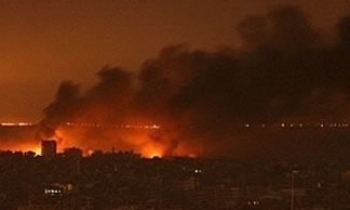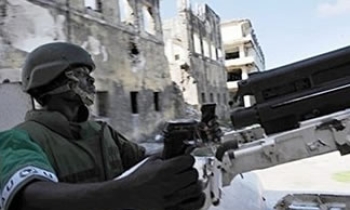KATHMANDU, Nepal (AP) -- Baton-wielding police beat journalists who were protesting against a media clampdown in the Nepalese capital on Saturday, as a general strike called by the opposition to demand the king's ouster shut down this Himalayan nation.
About 200 journalists marched through the capital Kathmandu demanding the restoration of press freedom and the release of dozens of journalists detained since King Gyanendra seized power over a year ago.
Police blocked the rally and charged at them with batons. Seven journalists were wounded and at least a dozen detained, protest organizers said.
"We condemn the crackdown on peaceful protests. We will continue to take out protests until all restrictions on the media are fully lifted," said Bishnu Nisthuri of the Federation of Nepalese Journalists.
More protests broke out in Kathmandu Saturday, a day after the political opposition rejected Gyanendra's plea for dialogue and vowed to continue their campaign to demand his ouster.
The seven main opposition parties opposed to the king's rule decided late Friday they would continue with a general strike and organize more protests.
"We have decided to strictly enforce the general strike. The strike appeared to be relaxed over the last two days, but that will change from today," Subash Nemwang of the Communist Party of Nepal said Saturday. "Life will be brought to a standstill."
Traffic had picked up in Kathmandu on Friday, with many stores open.
But few vehicles plied the streets Saturday. Only a handful of stores, mostly selling food, were open.
Activists trying to enforce the strike vandalized a taxi in Kathmandu on Saturday, and blocked traffic on the city's outskirts.
Highways remained deserted in most parts of the Himalayan nation, where roads are the only way to transport food, fuel and other supplies.
Krishna Sitaula of the Nepali Congress party said the opposition was changing its strategy from mass rallies in Kathmandu to protests in other cities.
On Friday, King Gyanendra broke his silence after more than a week of protests that left four dead. He called for dialogue with the country's seven major political parties and for a general election, but did not specify a date.
He did not mention the protests or the communist insurgency that has killed nearly 13,000 people in the past decade.
Opposition parties said the king failed to address the protests and the movement for democracy and described his offer for dialogue as a ploy to prolong his rule.
The king's call for elections is in line with a plan for a return to democracy he announced shortly after seizing power in February 2005.
The opposition -- and the well-armed communist insurgents -- argue that any elections held under King Gyanendra would not be free or fair.
King Gyanendra said he took control of the country to stamp out political corruption and end the communist rebellion.
Many of Nepal's 27 million people welcomed the move at first, but the insurgency has since intensified and the economy has worsened, fueling broad discontent.
Authorities have begun easing restrictions in the past two days, and on Thursday lifted a night curfew in Kathmandu and restored cell phone service, cut a week earlier in a bid to hinder protests.









